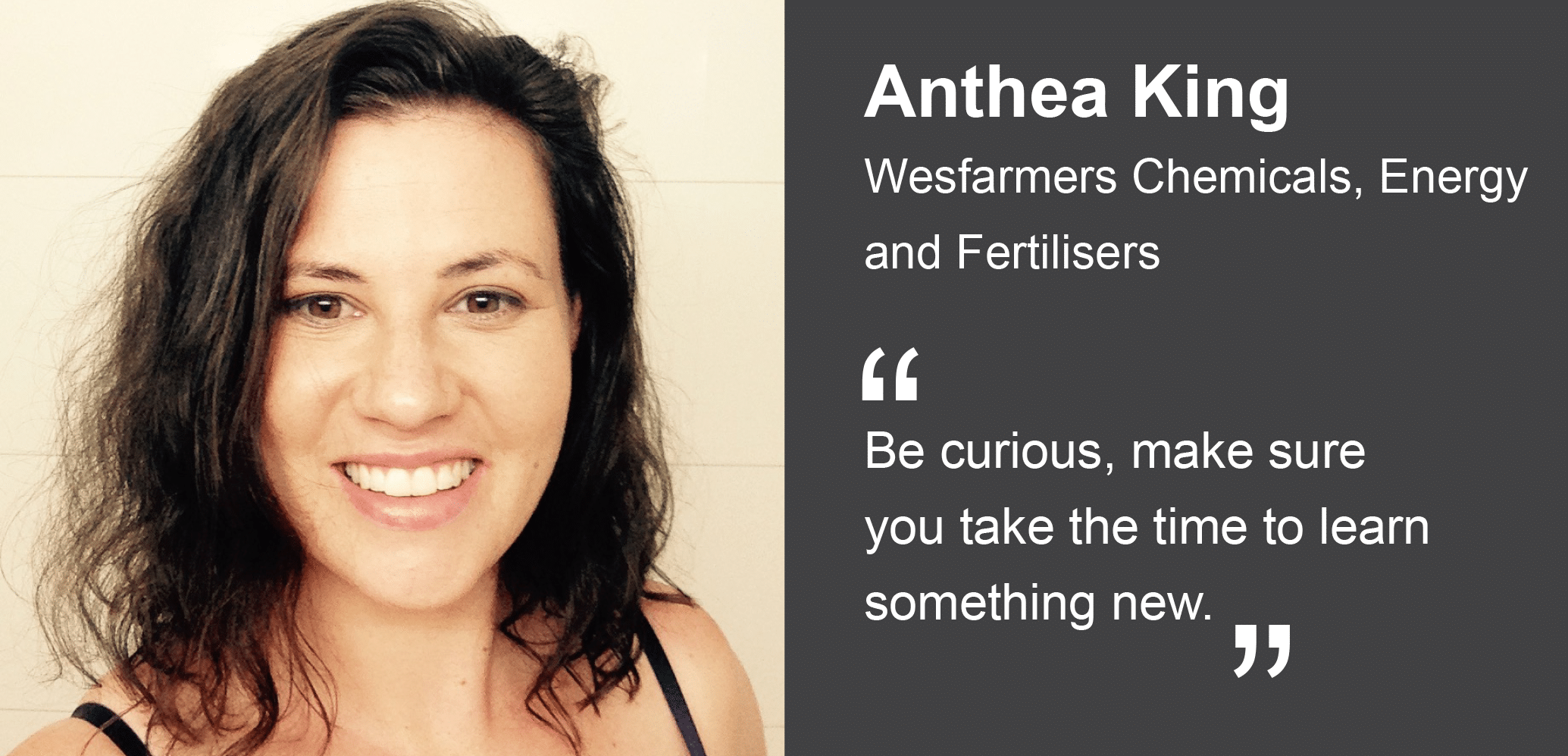Data Scientist Profile
Anthea King

What is your academic background?
I have a Bachelor of Science (1st Class Honours) majoring in Physics from the University of Queensland and a PhD in Astrophysics and Cosmology (jointly between University of Queensland and University of Copenhagen). I also held a postdoctoral fellowship in Astrophysics at the University of Melbourne.
Have you completed any other training in data science?
Most of my training came from my academic experience, but I have also gained knowledge and skills from reading research papers in the field and online articles, as well as completing several Massive Open Online Courses (MOOCs).
If you pivoted into a data science role from another area, how did you go about this and what advice would you give others looking to do the same?
I undertook a short internship with a data analytics company in Melbourne. I also spent time reading up on Machine learning and participating in a MOOC. However, one of the most important things to making this transition was less about upskilling from my previous field, but learning how to frame the skills I already had in terms of a data science role.
What sparked your interest in working with data?
I love learning how things work and interact with each other, it is what drew me into science. What I love about data science is that I get to be involved in a large range of projects and different modelling approaches. There is always something new to learn and I can see how my contribution helps the business.
How did you come to work in your current role?
Wesfarmers Chemicals, Energy and Fertilisers (WesCEF) had previously worked with some researchers in the astronomy department at Curtin. When they were recruiting for this role, they sent an email to the astronomy department advertising the job. My partner’s boss forwarded the job advertisement to me knowing I was looking for data science work, so I put in an application for the position.
What sort of projects have you been working on?
Primarily predictive models (using a range of models – linear, MARS, boosted tree models) and process optimisation. Working with chemical manufacturing plants and investigating how they could operate the plants more efficiently. Along with some smaller projects.
What tools/platforms do you use in your work?
Primarily Python, Excel, Amazon web services, some R, and PowerBI.
What has been a highlight of your data science career so far?
I’m not sure if I have a clear highlight, but I do love working with the different businesses within WesCEF, learning about lots of different fields and being able to deliver insights to the business and help them achieve their tasks more efficiently.
What challenges have you faced as a data scientist?
There is always a challenge associated with data availability and data quality. There is also the balance of working with teams that already have their plate full with business-as-usual responsibilities, and getting them engaged in enabling the long term task required to digitise their processes.
What are some of the big areas of opportunity/questions you want to tackle in this space?
I would really love to help develop more smart/hybrid models which incorporates existing process knowledge into machine learning models. I am really interested in doing this in the anomaly detection and root cause analysis space.
What excites you most about recent developments in Data Science?
Mostly the possibility of it all. It’s developing as a field so quickly. Though, if I had to choose a specific field, it would be computer vision. I see a lot of potential in this field and how it could be applied.
What does the future of data science look like?
I believe we will see more citizen data scientists embedded in the business. In the near term, the data scientists in the business will not just be running the advance analytics projects but also enabling the people within the business to perform their own analysis more effectively. In the far term, we’ll see data scientists working with the citizen data scientists in the business to solve complex and long term analytics problems.
For people considering a career in data science, what is one piece of advice you would give?
Be curious, make sure you take the time to learn something new (book this into your work schedule). Communication is key, there is no point mastering the technical skills if you can’t explain what the results are and convince people it is correct.
We would like to acknowledge and pay respect to the traditional owners of the land on which the WADSIH office is located, the Whadjuk people of the Nyungar Nation.